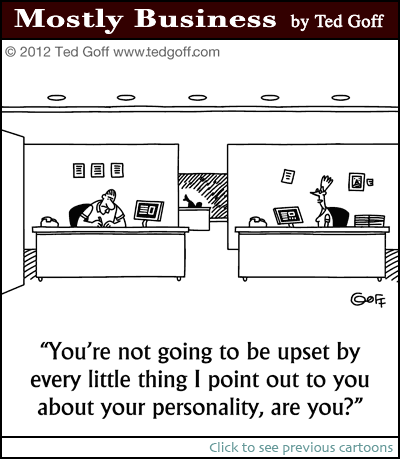Author Carol Kennedy published her fifth edition of 'The Guide to Management Guru's" in January of this year. The book gives an excellent almost academic overview of the most important business minds of today. She listed the guru's alphabetically, which serves her purpose of portraying the playing field, although it is not as much fun as the Accenture management 'power list' :-)
Truth is, it is probably one of the better management books of 2007.
Here follows the list of what she considers the major management guru's of today:
- Adair John: Action-Centered Leadership: how task, team and individual overlap.
- Ansoff Igor H: The theory and practice of strategic planning.
- Argyris Chris: Developing individual potential within the organization: single and double-loop learning.
- Barnard Chester: Managing the values of the organization.
- Belbin Meredith: Complementary roles in team-building.
- Bennis Warren: "Managers do things right. Leaders do the right thing."
- De Bono Edward: Lateral thinking: "the generation of new ideas and the escape from old ones."
- Burns James McGregor: Leaders who transform and empower their followers.
- Chandler Alfred D: Structure follows strategy in organizations.
- Christensen Clayton M: The power of disruptive innovation
- Deming W. Edwards: The key to quality: reducing variation
- Drucker Peter: Originator of modern management thinking
- Fayol Henri: Five foundations stones of modern management
- Follett Mary Parker: 'Responsibility is the great developer'
- Gantt Henry: The key tool for managing projects
- Ghoshal Sumantra: Transnational management and the 'new moral contract'
- Gilbreth Frank and Lillian: Efficiency through studying time and motion
- Hamel Gary: Core competencies of business processes
- Hammer Michael: The radical redesign of business processes
- Handy Charles: The future of work and organizations
- Herzberg Frederick: Motivation and job enrichment
- Hofstede Geert: The causes of cultural diversity
- Humble John: Management by Objectives as a practical methodology
- Jaques Elliott: Psychological factors in group behaviour and the 'midlife crisis'
- Juran Joseph M: Company-wide quality cannot be delegated
- Kanter Rosabeth Moss: The 'post-entrepreneurial' corporation empowering individuals as a force of change
- Kaplan Robert S. and Norton David P: The balanced scorecard system of performance measurement
- de Vries Kets Manfred: Psychoanalysing the organization
- Kim Chan W. and Mauborgne Reneé: Value innovations and 'blue ocean' strategy
- Kotler Philip: Marketing as a management science
- Kotter John P: Leadership and organizational change
- Levitt Theodore: Understanding the true role of marketing
- Likert Rensis: How leadership styles link with business performance
- McGregor Douglas: Theory X and Theory Y: authoritarian vs participative management
- Maslow Abraham: The 'hierarchy of needs' in motivation
- May Elton W: Human relations in industry and respect for individuals
- Mintzberg Henry: How strategy is made and how managers use their time
- Ohmae Kenichi: Lessons from Japanese global business strategy
- Pascale Richard T: Continuous renewal in organizations
- Peters Tom and Waterman Robert H: The 'excellence' cult and prescriptions for managing chaotic change
- Pfeffer Jeffrey: Key success factors in managing people
- Porter Michael: Strategies for competitive advantage, both national and international
- Prahalad C. K: Finding rich markets by serving the world's poor
- Revans Reg: Managers educating each other through 'action learning'
- Schein Edgar H: The 'psychological contract' between employer and employee
- Schonberger Richard J: Each function in a business seen as a 'customer' of the next in the chain
- Schumacher E. F: 'Small is beautiful': the human scale against corporate 'giantism'
- Senge Peter M: Systems thinking and the learning organization
- Sloan Alfred P: Decentralizing big corporations
- Stephenson Karen: Mapping and managing human networks
- Taylor F. W: Scientific management and the 'one best way'
- Toffler Alvin: A world in flux and the rise of the 'prosumer'
- Trompenaars Fons: Managing cultural differences for business success
- Weber Max: How individuals respond to authority in organizations
- Welch Jack: 'Maximizing the intellect of the organization'





















